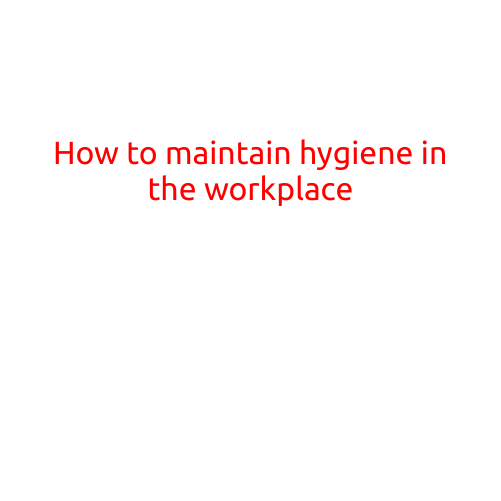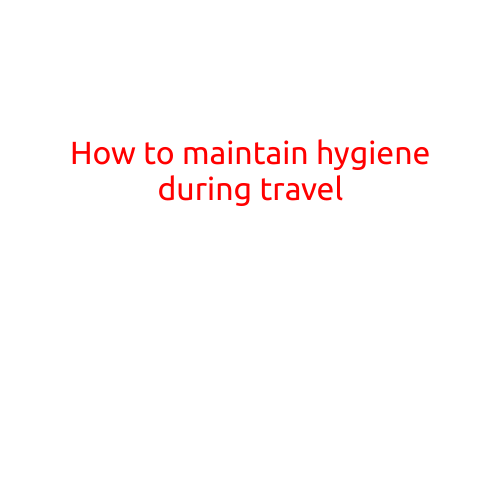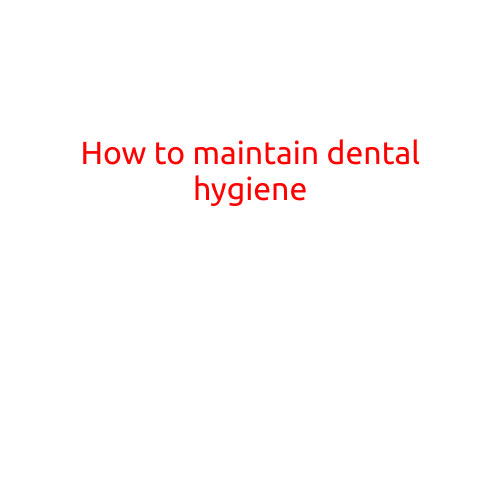
How to Maintain Hygiene in the Workplace
Maintaining hygiene in the workplace is crucial to prevent the spread of illnesses, maintain a healthy work environment, and boost employee morale. A clean and hygienic workspace not only promotes physical health but also boosts productivity and job satisfaction. In this article, we will discuss the importance of maintaining hygiene in the workplace and provide tips on how to do it effectively.
Why is Hygiene Important in the Workplace?
Hygiene is important in the workplace because it helps to prevent the spread of illnesses and diseases. When employees come into contact with dirty surfaces, contaminated food, or unhygienic practices, they are at risk of contracting various ailments. Moreover, poor hygiene can lead to decreased morale, absenteeism, and turnover, ultimately impacting the productivity and profitability of the organization.
Tips for Maintaining Hygiene in the Workplace
- Establish a Cleaning Schedule: Create a schedule for cleaning and disinfecting high-touch areas such as doorknobs, light switches, and countertops. This will help to prevent the buildup of bacteria and viruses.
- Encourage Hand Washing: Ensure that employees wash their hands regularly, especially after using the bathroom, before eating, and after blowing their noses, coughing or sneezing. Provide hand sanitizer stations throughout the workplace.
- Maintain Clean Restrooms: Keep restrooms clean and well-stocked with soap, toilet paper, and paper towels. Ensure that floors and surfaces are regularly cleaned and disinfected.
- Sanitize Food and Drinks: Prevent cross-contamination of food and drinks by ensuring that food handlers wash their hands regularly and maintain clean food preparation and storage areas.
- Encourage Employees to Cover their Mouths: Teach employees to cover their mouths when coughing or sneezing with a tissue or their elbow to prevent the spread of airborne pathogens.
- Properly Dispose of Waste: Ensure that employees properly dispose of trash and recyclables in designated areas to prevent the accumulation of waste and potential health hazards.
- Regularly Deep Clean: Conduct regular deep cleaning of high-touch areas, carpets, and upholstery to remove dirt, dust, and allergens.
- Provide Personal Protective Equipment (PPE): Provide PPE such as gloves, masks, and eye protection to employees who handle hazardous materials, chemicals, or biological agents.
- Conduct Hygiene Training: Provide regular hygiene training to employees on the importance of hygiene, how to maintain personal hygiene, and how to report any hygiene concerns.
- Monitor and Respond to Hygiene Incidents: Establish a system for employees to report any hygiene incidents or concerns. Respond promptly and effectively to incidents to prevent the spread of illnesses and diseases.
Benefits of Maintaining Hygiene in the Workplace
By maintaining hygiene in the workplace, you can:
- Reduce the spread of illnesses and diseases
- Improve employee morale and job satisfaction
- Boost productivity and efficiency
- Prevent absenteeism and turnover
- Protect your employees’ health and well-being
- Maintain a positive and professional work environment
In conclusion, maintaining hygiene in the workplace is crucial to prevent the spread of illnesses, maintain a healthy work environment, and boost employee morale. By following the tips outlined in this article, you can create a clean, hygienic, and healthy workplace that benefits both employees and the organization as a whole.





